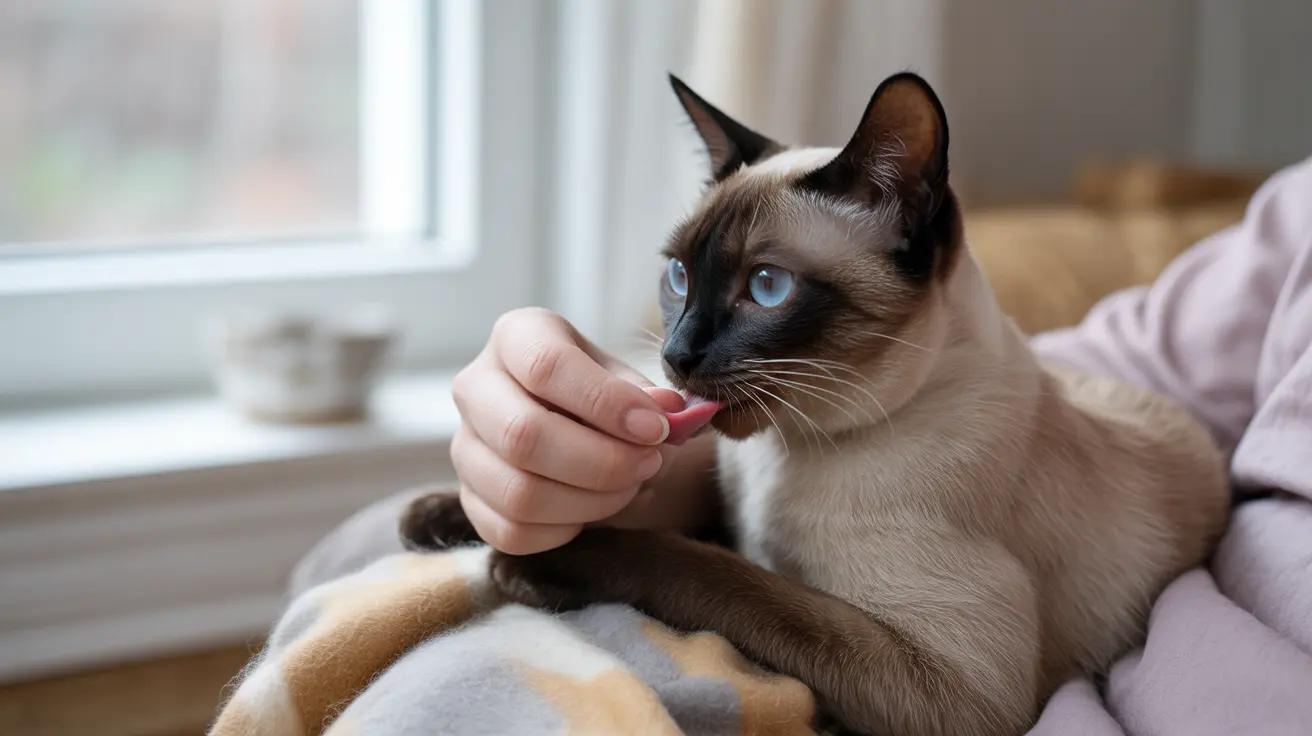If you've ever wondered why your feline friend turns you into their personal grooming project, you're not alone. Cats licking their human companions is a fascinating behavior that carries multiple meanings in the complex world of feline communication. Let's explore the various reasons behind this endearing yet sometimes puzzling habit.
The Social Bonding Behind Cat Grooming
When your cat licks you, they're engaging in a behavior deeply rooted in their social nature. This grooming ritual, known as allogrooming, is primarily a way for cats to strengthen their social bonds. Just as mother cats groom their kittens to show care and affection, your adult cat continues this learned behavior with their chosen family members – including you.
This display of trust and comfort often indicates that your cat considers you a valued member of their social group. By grooming you, they're essentially treating you as they would another cat they feel close to, which is quite a compliment in the feline world.
What Does It Mean When Your Cat Licks You?
Your cat's licking behavior can convey several different messages. Most commonly, it's a sign of affection and trust. When your cat grooms you, they're showing that they feel secure enough in your presence to engage in this vulnerable behavior.
Additionally, cats use licking as a way to mark their territory. When they groom you, they're depositing their scent on your skin, effectively claiming you as part of their territory. This marking behavior helps create a familiar, comforting environment for your cat.
Understanding Cat Grooming Patterns
The timing and intensity of your cat's grooming can provide insights into their emotional state. Some cats may lick more frequently when they're feeling anxious or stressed, using the behavior as a self-soothing mechanism. Others might increase their grooming when seeking attention or trying to communicate a specific need.
When Should You Be Concerned?
While cat grooming is generally normal behavior, excessive licking might indicate underlying issues. If your cat suddenly increases their grooming behavior or seems compulsive about it, this could signal anxiety, stress, or medical problems.
- Obsessive or aggressive licking
- Skin irritation or hair loss
- Changes in normal grooming patterns
- Signs of distress during grooming sessions
Frequently Asked Questions
Why do cats lick their owners as a sign of affection?
Cats lick their owners to show affection because it's a natural behavior learned from kittenhood. This grooming behavior releases feel-good endorphins and helps strengthen the bond between cats and their human companions.
How does my cat's licking behavior help strengthen our bond?
When cats groom their owners, they're treating them as part of their family group. This social grooming behavior helps build trust and reinforces the emotional connection between cats and their human caregivers.
What does it mean when my cat licks me excessively or compulsively?
Excessive licking might indicate anxiety, stress, or medical issues. If your cat's licking becomes compulsive or causes concern, consult with your veterinarian to rule out underlying problems.
Can cat licking be a way for them to mark territory or claim ownership?
Yes, when cats lick you, they're depositing their scent on your skin, effectively marking you as their territory. This is a natural behavior that helps cats establish their social and physical boundaries.
How can I tell if my cat is licking me due to stress or anxiety?
Signs that your cat's licking might be stress-related include increased frequency, compulsive behavior, associated nervous behaviors, or licking that occurs primarily during stressful situations. Changes in routine or environment often trigger stress-related licking.






